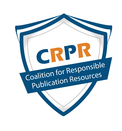Editor’s Note: Today’s post is by Avi Staiman. Avi is the founder and CEO of Academic Language Experts, a company dedicated to assisting academic scholars to prepare their research for publication and bring it to the world.
It’s Never Too Early to Care
“Have you prayed for your spouse yet today?” The teacher at my religious seminary asked me.
“Excuse me, Rabbi,” I responded. “I don’t even have a partner. I’m only 18 and not thinking about any serious relationships at the moment,” I retorted.
“So you care about your partner only once they become part of your life?” he retorted. “You don’t care about how they are doing now?”
This conversation was dragged out of the recesses of my mind at the recent Frankfurt Book Fair in October when a number of publishers told me that they tend to stay out of the research development process, seeing it as the author’s responsibility to bring the manuscript to the point of submission. They perceived their role as only engaging with authors at the very end of the research workflow, when the project is complete and ready for review. I wondered whether the gentle rebuke I received as a student might be a good parable for describing publishers’ attitudes in building relationships with potential authors.

Publication as the Final Stop of a Lengthy Journey
We tend to forget that publishing does not exist in a vacuum; rather, it is the end of a prolonged and protracted process for the researcher that may include (but not be limited to): applying to and receiving grant funding, putting together a research team, enlisting research participants, digging through archives, conducting interviews, writing and revising findings, making publication choices, and more. By the time researchers (especially, early-career) are ready to submit their manuscript, they tend to already be quite worn out and exhausted with the research they are working on and have moved on to their next project.
Of course, publishers can’t and shouldn’t become involved in every stage of the publication process and many have already taken steps for building out a range of post-publication services to help authors fulfil funding impact requirements. Some of the bigger publishers have also made moves to move upstream in a significant way as well.
However, many other publishers continue to not seriously consider the steps authors go through to arrive at the moment of submission at their own peril. The steps that precede an author’s decision to submit to one publisher over another are directly impacted by the author’s impression of and experiences with those respective publishers.
With article processing charges (APCs) becoming a driving economic force in academic publishing, getting in front of authors at an early stage becomes all the more important. Publishers need to engage in a serious manner with authors in the steps leading up to the submission decision in order to ensure that they have a positive experience and choose to use their funding with that publisher and not elsewhere.
Publishers can, of course, rely on their brand reputation and wait by their inbox for a flood of submissions. However, publishers who take active interest in helping authors further upstream have much to gain. Not only can editors help build trust by shepherding authors through processes that may be intimidating or unfamiliar to them, but they can also proactively attract authors searching for guidance who have yet to decide on a publisher, thus increasing the quantity and quality of manuscripts they receive. This doesn’t have to mean considerable investment in acquisitions, but can simply include the establishment of strategic partnerships with author service and tool providers designed to empower authors.
Pro-active Engagement with Authors
I want to suggest a few ways that publishers can make authors’ lives easier, build trust and, in turn, increase the number of quality submissions they receive:
- Make editors more accessible– Authors often report that it is challenging to them to figure out when, how, and to whom they should submit their work. Should they be reaching out to the editor, uploading a form via the website, or emailing one of the editorial staff? Most publisher websites require authors to hunt around the site looking for information. Even if they can find the right editor, will they receive a timely response with clear step-by-step instructions? Engaging when authors are still mid-project can enable deeper engagement and substantive improvements.
- Offer author services– Many authors need external support and assistance at various stages of the research and manuscript development process, from formulating their research design through developmental editing and proofreading. This is especially true for English as an Additional Language (EAL) authors who are up against the additional disadvantage of having to work in their second or even third language. Some authors who need these services most are embarrassed to ask publishers for help as they are worried that it will reflect poorly on their work and don’t know where to turn.
- Give feedback early and often- Make it clear to authors both on your website and in personal communication that they can be in touch with their editor before they have a fully formed manuscript. Many authors wait until the very end of their writing before reaching out. Be the publisher that rolls out the red carpet and delights authors when they least expect it.
Thankfully, we have many tools at our disposal and aren’t left to prayer alone for help. In the new world of OA publishing, authors are looking for publishers who are excited by their work and can help make the process as smooth and painless as possible. By being proactive and engaging with authors before their projects are fully formed, publishers can better educate authors about their priorities and expectations and find more authors primed and eager to find a home for their work.
Interested in having your say in The Scholarly Kitchen? We welcome guest posts — more information here: Be Our Guest, Be Our Guest (Author)!
Discussion
7 Thoughts on "Guest Post — The Time Has Come to Start Swimming Upstream: How Meaningful Engagement with Authors Early in the Research Process Can Yield Significant Benefits to Publishers"
In days of yore there were people called college travelers. They introduced new text books to the market and in the process of the sales call asked if the prof was considering or would consider writing a book. The better travelers learned all about publishing and tenure and knew the importance of writing papers for tenure. They learned the process a young prof needed to go through to get a paper published. In short, they learned how publishing interacted with promotion and tenure and they relayed this information to the prof. They knew about journal editors because they called on them. They knew how to contact them.
This symbiotic relationship often resulted in the signing of a text book when the time was ripe i.e. after tenure and discouraged attempting to write one before that.
Many college travelers became acquisition and or acquiring editors for books and journals. They knew their trade and educated their clients.
But that was then and this is now and professional college traveler an occupation, for the most part, they are thing of the past.
Great suggestions for improving the author experience (which we have acronym-ized to AX, because little is taken seriously in this industry unless it has an acronym 😉 Avi). Agree with you that a holistic approach to author experience is both necessary and pays dividends. We see this as a tectonic event for the industry. The author has of course always been central (no authors no journals or books!) but thinking about author experience as a competitive advantage is largely new. Indeed, many authors might still describe their author experience with some journals in martial, as apposed to marital terms. Here is a link to more thought on this mission-critical topic: https://www.ce-strategy.com/2022/09/author-experience-ax-an-essential-framework-for-publishers/
Thanks Michael! As I wrote in my back and forth with Colleen Scollans on Linkedin, your post was part of my inspiration for writing my piece. My aim was to take things one step further and see how we turn the AX concept into concrete action items (at least in the areas that I know best).
I wonder what other ideas you had for promoting AX and whether you think we should be looking to the world of UX for solutions or if you have other ideas for moving this forward.
I couldn’t agree more, Avi! This type of author engagement helps make the publishing process – often so confusing for early career researchers – much more personal and helpful. I would add that publishers should definitely expand their thinking of author engagement – beyond the journal article. These relationships between publishers and authors should also be provided in services for “pre-final-publications”, such as conference output and other early-stage research. If publishers can start their journey with an author when they first start to share early findings, the whole process could become significantly more efficient – saving the author so much time before they even begin the publishing process and give the publisher the opportunity to build the relationship as early and as targeted as possible.
Thanks for your thoughtful input Sami. In general, I agree with your approach and the potential benefit for early publisher engagement is all sorts of productive ways including conferences.
I wonder whether we run a risk (as with pre-prints) of there being confusion between peer-reviewed and non-peer-reviewed research if publishers are actively involved in both. I don’t think there will be much confusion within academia but I can see it being confusing for those who are less familiar with the process research needs to undergo to be published.
Neat perspective; thank you for this post!
Thanks Chhavi, I appreciate you taking the time to read and comment!



